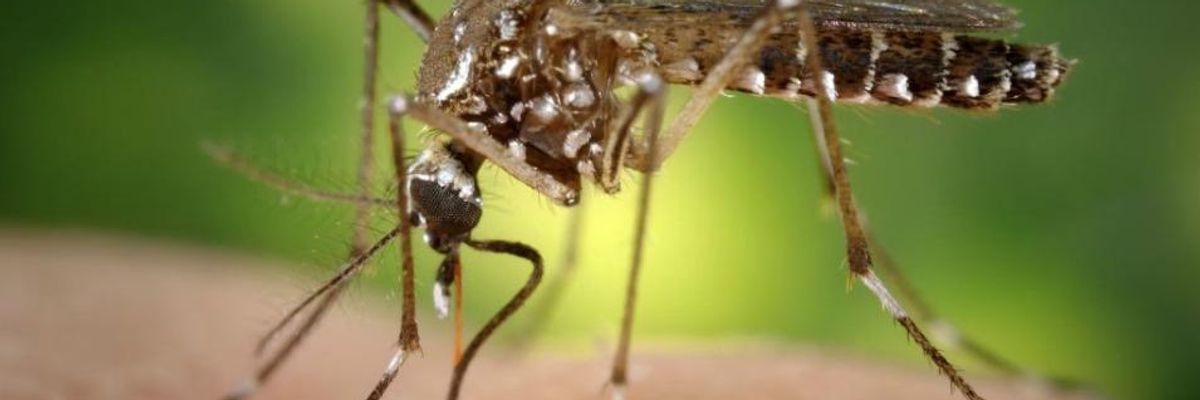Few things kill one's experience of the great outdoors like the dreaded mosquito, and in some cases, a nibble could have serious health consequences. That's why local governments in places like the Florida Keys are always looking for ways to control mosquito populations. But now mosquito control is colliding with biotechnology. Oxitec, the company behind GMO mosquitoes, wants to release its genetically engineered mosquitoes in the Florida Keys to combat dengue fever as soon as this spring.
Aside from being inherently risky and inappropriately regulated by the state and federal government, its plan faces two major hurdles: lack of public support and an inability to prove that the experiment will actually prevent disease transmission. A December town hall meeting in Key West gave residents a chance to voice their opposition to the trials, which they did with great zeal. A new study released last week will likely lead to even more questions about the possibility that reducing the population of one type of mosquito simply creates an opportunity for another type to flourish.
Research published in the peer-reviewed journal "PLoS Neglected Tropical Diseases" looked at the spread of populations of a different species of mosquito, the Asian Tiger Mosquito, in Panama. This species only just arrived in the country in 2002 and has spread quickly throughout the region in just over a decade. Asian Tiger mosquitoes are considered one of the most invasive species in the world and carry many diseases including dengue fever and West Nile virus. Since Oxitec's GMO mosquitoes are supposed to wipe out populations of yellow fever mosquitoes,it is very likely that Asian Tiger mosquitoes would rapidly step up to fill the void, negating any benefits of the GMO mosquitoes.
Not only is there the chance that Asian Tiger mosquitoes will fill the niche left behind from lowered yellow fever mosquito populations, but the GMO mosquitoes could actually make a quick comeback. The scientists predict that because "...Ae. aegypti (yellow fever mosquitoes) ha[ve] similar demographic and dispersal patterns as Ae. Albopictus [Asian Tiger mosquitoes], Ae. aegypti populations may quickly rebound via recolonization after cessation of GM programs." This scenario would ensure the irrelevance of Oxitec's mosquito trials, since "GM strategies might have only short-term effects on vector population size and may commit Panama to a repeated and costly program for long-term [arthropod-borne virus] control."
This research confirms what Food & Water Watch and concerned residents of the Florida Keys have been saying all along: releasing genetically engineered mosquitoes into the environment will not be worth the effort, expense and potential risk. Oxitec has shown that its technology can decrease the population of yellow fever mosquitos, but not necessarily the spread of dengue fever itself.
Before Florida spends hundreds of thousands of dollars on a release of these questionable bugs, there should be some evaluation of whether the technology actually performs its intended mission. And judging from this new research, unless Oxitec is able to control both mosquito species simultaneously, its technology will be completely useless at preventing disease transmission. Since Oxitec's GMO mosquitoes aren't likely to stop dengue fever, maybe they should just buzz off.
